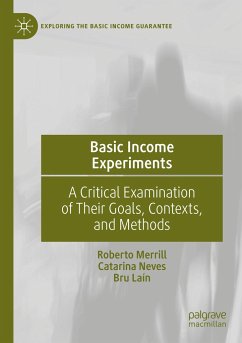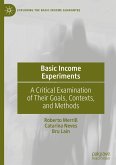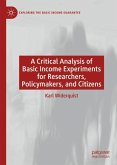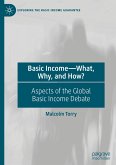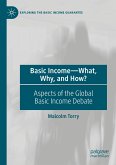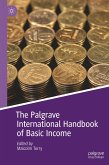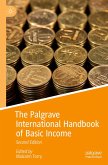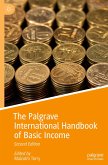This book brings together insights and reflections following a set of interviews conducted with the main stakeholders involved in past, current, and future basic income experiments. It provides an analysis of some of the major elements and factors influencing experiments, as well of some of their most important outputs understood as results of their own experimental design, their sociological and political basis, and the epistemological status of their results.
By pursuing a bottom-up strategy, where the interviews conducted take a pivotal role in the collection and analysis phase of the book, this book gathers key questions relating to policy experiments. Some questions reflected upon include the general idea of why one should engage and implement a basic income experiment, and the paradox consisting in the fact that most basic income experiments fall short of being closely considered "pure" basic income schemes. In facing the question and the paradox head-on,the book assesses questions of experimental design, the political and social context surrounding the policy, and the main results and what can they tell us about basic income.
By pursuing a bottom-up strategy, where the interviews conducted take a pivotal role in the collection and analysis phase of the book, this book gathers key questions relating to policy experiments. Some questions reflected upon include the general idea of why one should engage and implement a basic income experiment, and the paradox consisting in the fact that most basic income experiments fall short of being closely considered "pure" basic income schemes. In facing the question and the paradox head-on,the book assesses questions of experimental design, the political and social context surrounding the policy, and the main results and what can they tell us about basic income.

